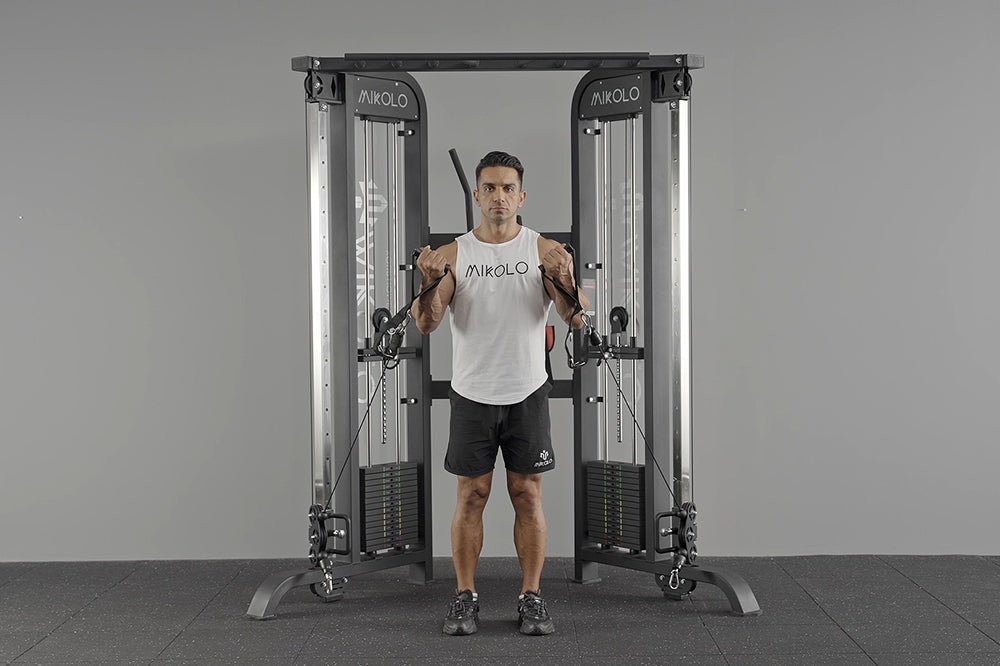When it comes to building a powerful upper body, chest training is a cornerstone of any balanced program. A well-developed chest doesn’t just look impressive—it supports pressing strength, enhances athletic performance, and improves posture. Whether you’re chasing a bigger bench press or simply want a more sculpted physique, knowing the right chest exercises and how to perform them makes all the difference.
The Core Chest Exercises
At the heart of chest training are foundational movements that target the pectoralis major, pectoralis minor, and supporting muscles like the triceps and anterior deltoids. The bench press remains the king of chest lifts, with variations like the flat barbell press, incline dumbbell press, and decline press each emphasizing different parts of the chest.
The push-up—often overlooked in advanced training—remains a highly effective bodyweight option that can be modified for progressive overload. Adding a weighted plate on your back or performing deficit push-ups deepens the stretch and increases resistance.
Weight Lifting Exercises for Chest Strength
For those focused on raw strength, weight training chest exercises are essential. Barbell and dumbbell presses allow heavy loading, while weighted dips build both the lower chest and triceps. Incorporating a Smith machine press can help maintain strict form and focus on controlled contraction.
Cable machines also offer unique benefits, particularly for flye variations. Cables keep constant tension on the muscle, making them excellent for hypertrophy work. Perform them standing, lying on a bench, or from a low-to-high angle to hit the chest from every direction.
Lifting for Muscle Shape and Definition
Not every chest session should be about moving the heaviest load possible. Incorporating higher-rep lifting chest exercises helps improve muscular endurance and creates a fuller appearance. Dumbbell flyes, squeeze presses, and even single-arm presses add variety and prevent training plateaus.
If you’ve been training for a while, you’ll notice that small adjustments—like grip width, bench angle, or tempo—can make a huge difference in muscle activation. These subtle chest variations are often what separates steady progress from stagnation.
My Experience with Chest Variations
When I first started lifting, my chest workouts were all about flat bench pressing heavy every week. While I made early gains, I quickly hit a plateau. It wasn’t until I added incline presses, dips, and cable flyes that my chest began to develop evenly. Changing angles and equipment challenged the muscle in new ways, and even lighter lifts produced noticeable growth. Today, I rotate between heavy barbell work, moderate-weight dumbbell exercises, and high-rep isolation movements to keep my training balanced and effective.
Structuring a Complete Chest Workout
A well-rounded chest session should include:
-
A heavy compound lift for strength (e.g., barbell bench press)
-
A secondary compound at a different angle (e.g., incline dumbbell press)
-
An isolation movement for targeted tension (e.g., cable flye)
-
Optional accessory work like dips or push-ups for finishing volume
Rest between heavy sets for 2–3 minutes, and shorten it to 45–90 seconds for lighter, high-rep movements. Focus on controlled form, a full range of motion, and progressive overload over time.
Final Thoughts
Chest training isn’t just about lifting heavy—it’s about training smart. Combining staple lifts with varied angles and resistance types ensures balanced development, better strength carryover, and a more aesthetic chest. Stay consistent, switch up your approach when progress slows, and your chest will become one of your strongest assets in the gym.









































Leave a comment
This site is protected by hCaptcha and the hCaptcha Privacy Policy and Terms of Service apply.